Wi-Fi extenders vs mesh routers: what’s best for your home or office network?
Know which Wi-Fi booster is ideal to expand your network coverage
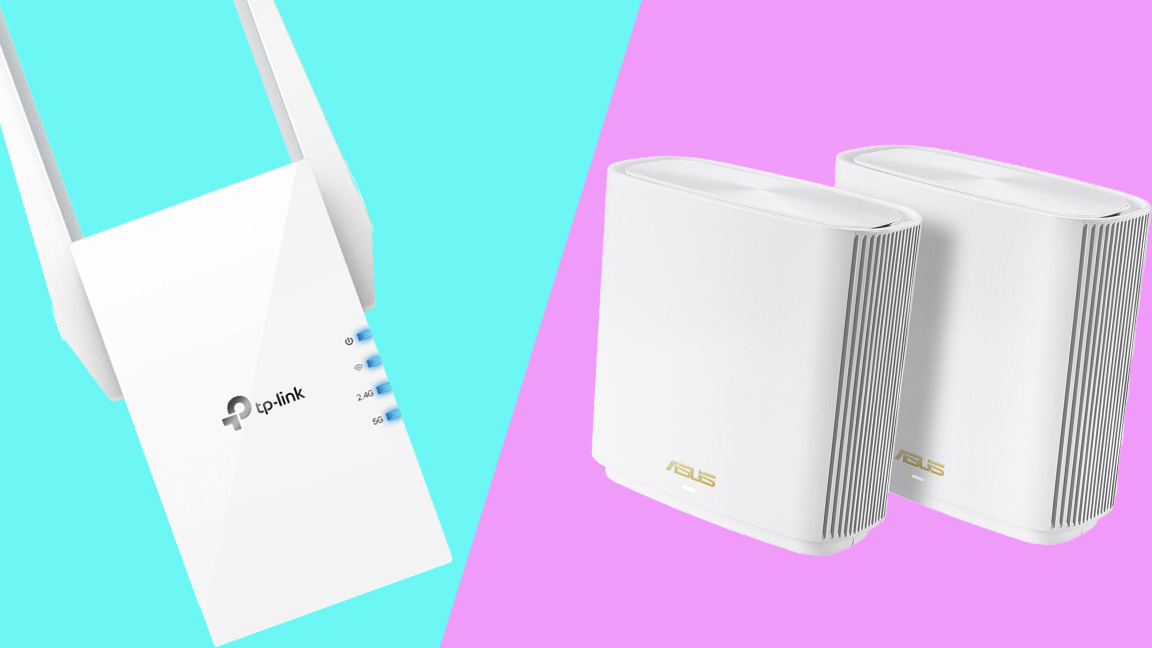
Sign up for breaking news, reviews, opinion, top tech deals, and more.
You are now subscribed
Your newsletter sign-up was successful
Wi-Fi extenders and mesh routers are both great solutions to improve your network signal and extend its reach. They're both worthy of consideration if your area of coverage is plagued with dead or weak spots or if your existing router just doesn't have enough reach to cover your entire space.
However, these two different network devices go about do so in different ways. So, although either network solution can help you overcome the limitations of your router, one will be a better choice than the other depending on your network demands and area size.
There is some overlap between these two types of devices these days. Plus, a handful of the best Wi-Fi extenders now utilize mesh technology, offer features like seamless roaming that will automatically switch to the strongest Wi-Fi signal in your home or office, and forgo the need for creating a separate network name.
On the other hand, the best mesh Wi-Fi systems, which were popularized by the likes of the Google Wifi, have come down enough in price that you might want to skip getting an extender altogether and replace your router with one of these mesh systems, particularly if your main router is starting to show its age.
The line between these two types of devices may be blurred, but one of them will be ideal for fixing your network blues. Read on as we compare Wi-Fi extenders vs mesh routers to see which one is right for you.
Wi-Fi extenders vs mesh routers: cost
- Premium Wi-Fi extenders cost more than some affordable mesh routers
- You’ll find affordable options from each type
Once upon a time, Wi-Fi extenders were the more affordable option. Back when mesh technology was fairly new, these extenders were generally regarded as the budget-friendly option for expanding your network range.
Now that mesh routers are more common, that’s no longer the case. In fact, as they get more advanced, you’ll just as easily find a premium Wi-Fi extender that costs as much as a mesh router system these days.
Sign up for breaking news, reviews, opinion, top tech deals, and more.
Something like the Netgear Nighthawk X6S EX8000 Tri-band WiFi Extender will set you back a lofty $248/£299 without offering Wi-Fi 6 support. That puts it in the same price range as the highly rated Netgear Orbi Pro WiFi 6 Mini Mesh System (SXK30), which costs $269/£259, and the popular Google Nest Wifi router and one node bundle ($269/£239). At that point, it’d be wiser and more cost-effective to get a mesh router instead.
On the budget to mid-range front, something like the Linksys RE7000 Max-Stream AC1900+ extender costs around $129/£98. That's similar to the TP-Link Deco M5 mesh system, which is currently $129/£129.
That’s great news, as it means you no longer have to limit your options to one type if you’re on a budget. On the other hand, if you’re hoping to make your decision solely based on price, you’re gonna have to dig deeper.
Winner: Tie
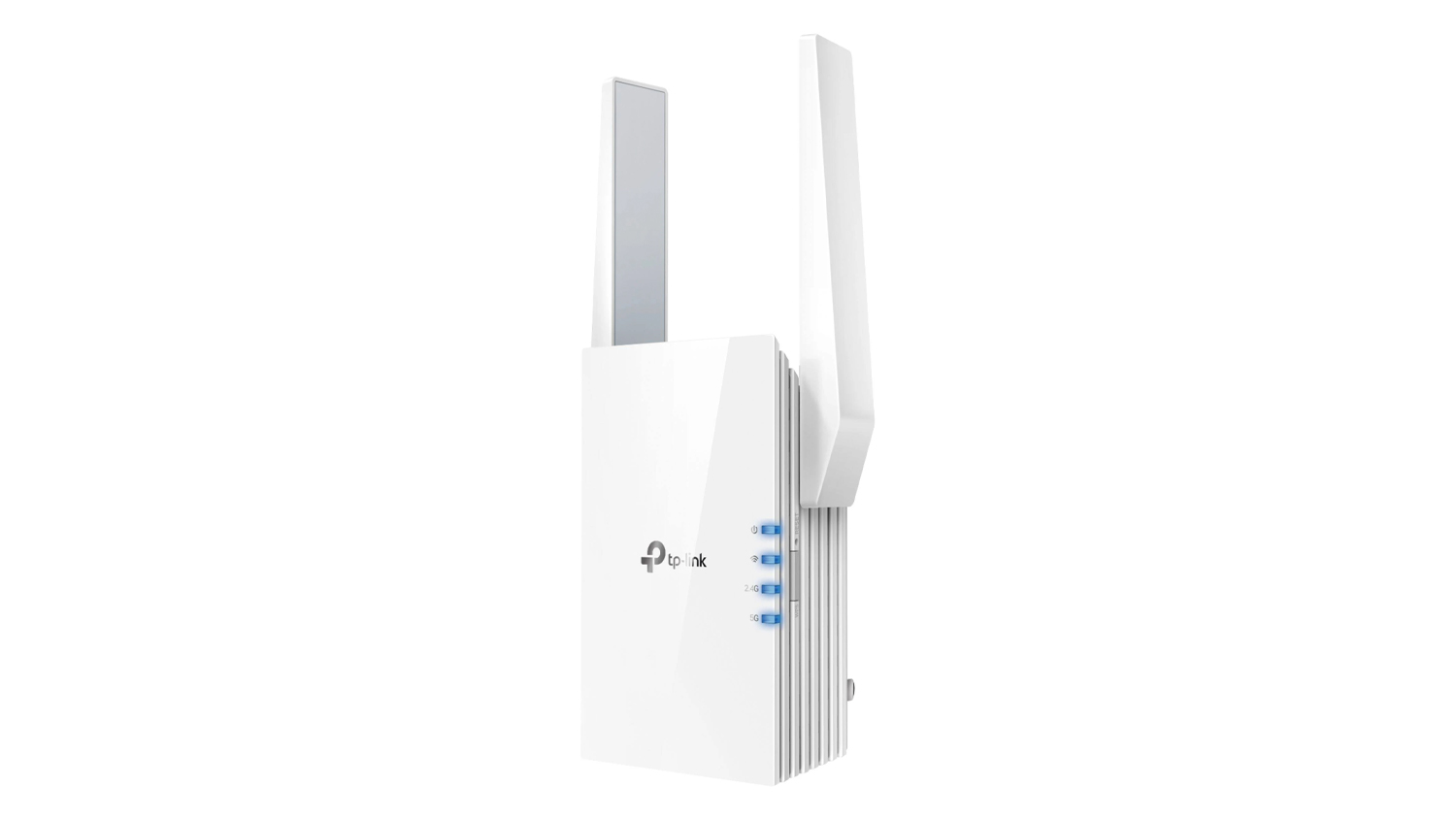
Expand the range of your network
Pros
- Affordable Wi-Fi 6
- Works with any router
- Simple set-up
Cons
- Dual-band support
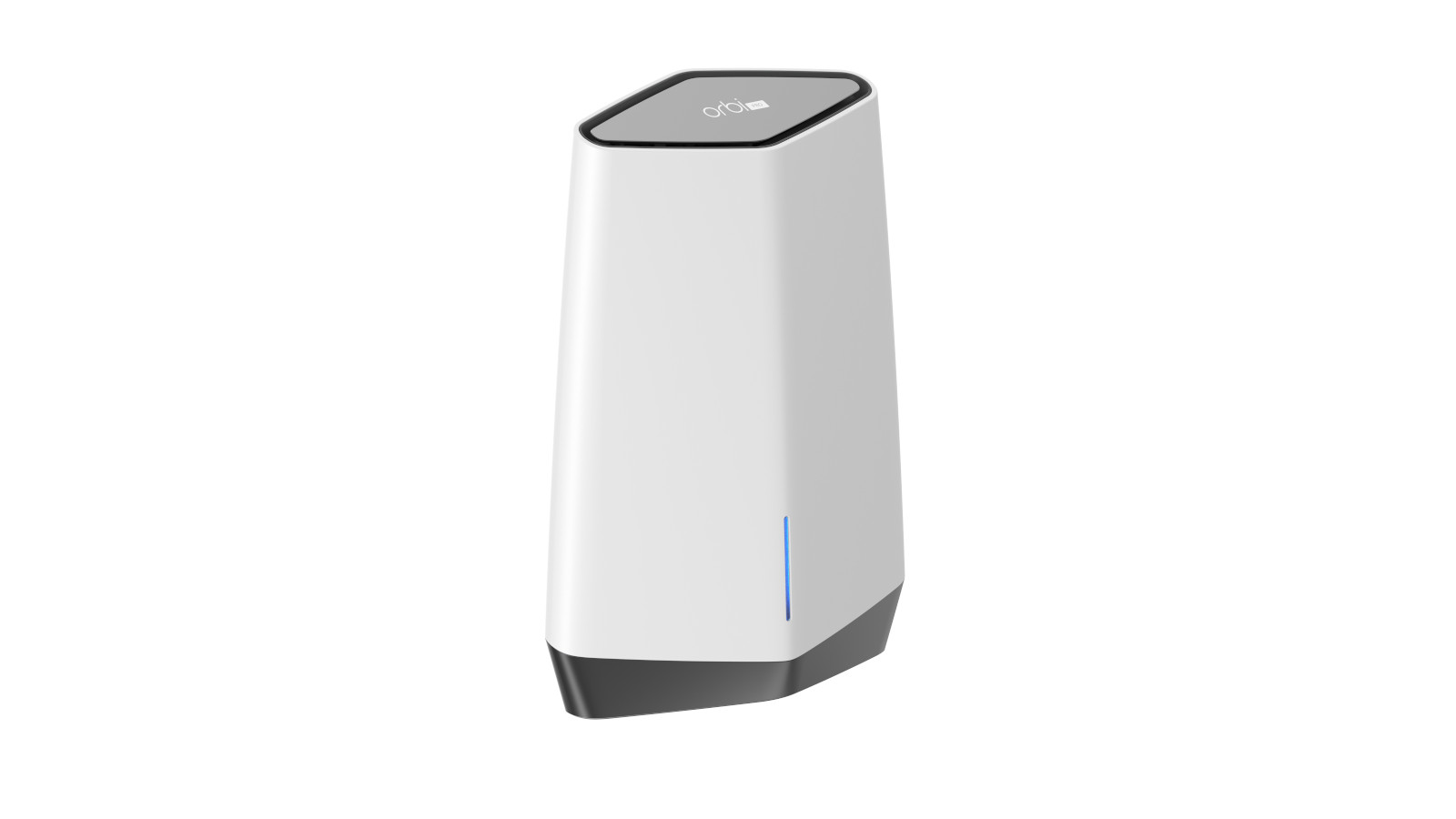
Netgear expands its Orbi line with a Pro WiFi 6 option
Pros
- Easy to deploy
- 6Gbps backhaul
- Tri-band AX6000
Cons
- Expensive
- Hardly inconspicuous
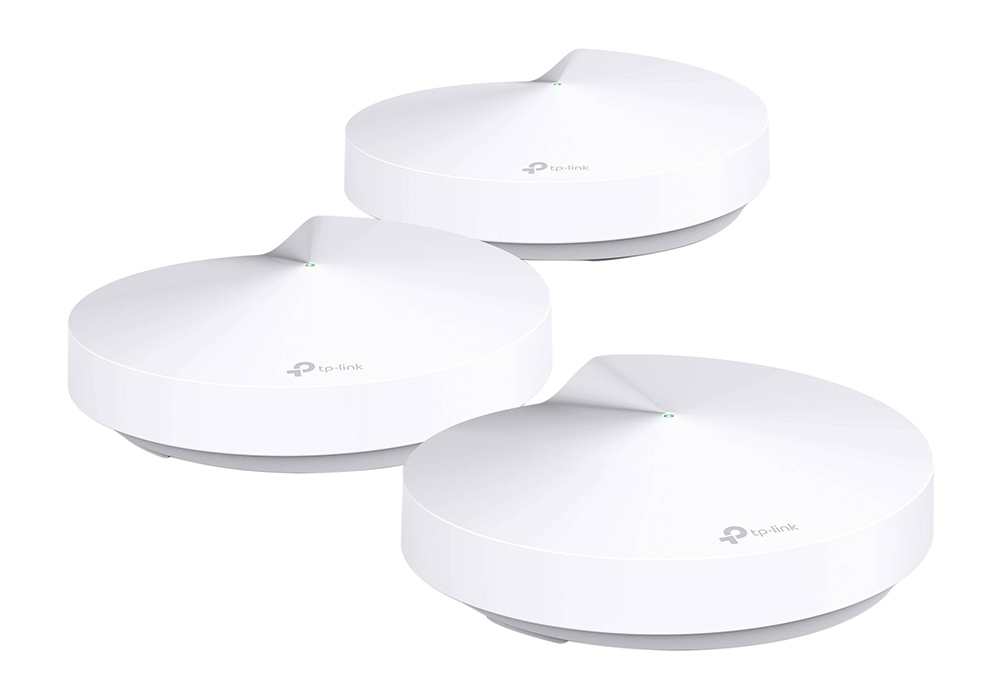
Mesh gets affordable, and takes a small performance hit
Pros
- Great value
- Easy to configure
- Good coverage
Cons
- Not as fast as some
- Lacks fine control
Wi-Fi extenders vs mesh routers: ease of use and performance
- Traditionally, Wi-Fi extenders create a new network
- Mesh routers use just one network
Wi-Fi extenders connect to your existing network and expand its range, but traditionally, they also have to create a new network name in the process. You see this often in hotels and other establishments with two or three separate network names (for example, HotelWiFiMain, HotelWiFiGuest, etc) with varying degrees of signal strength depending on where you are in the building.
That in and of itself isn’t a problem. But it means you might still experience weak connectivity when moving about the premises.
To use our example above, you could get a robust signal while connected to the HotelWiFiGuest network in your hotel room. However, if you then take your laptop to the lobby, you might be out of that network’s reach and will have to manually connect to the HotelWiFiMain, which is strongest in the lobby.
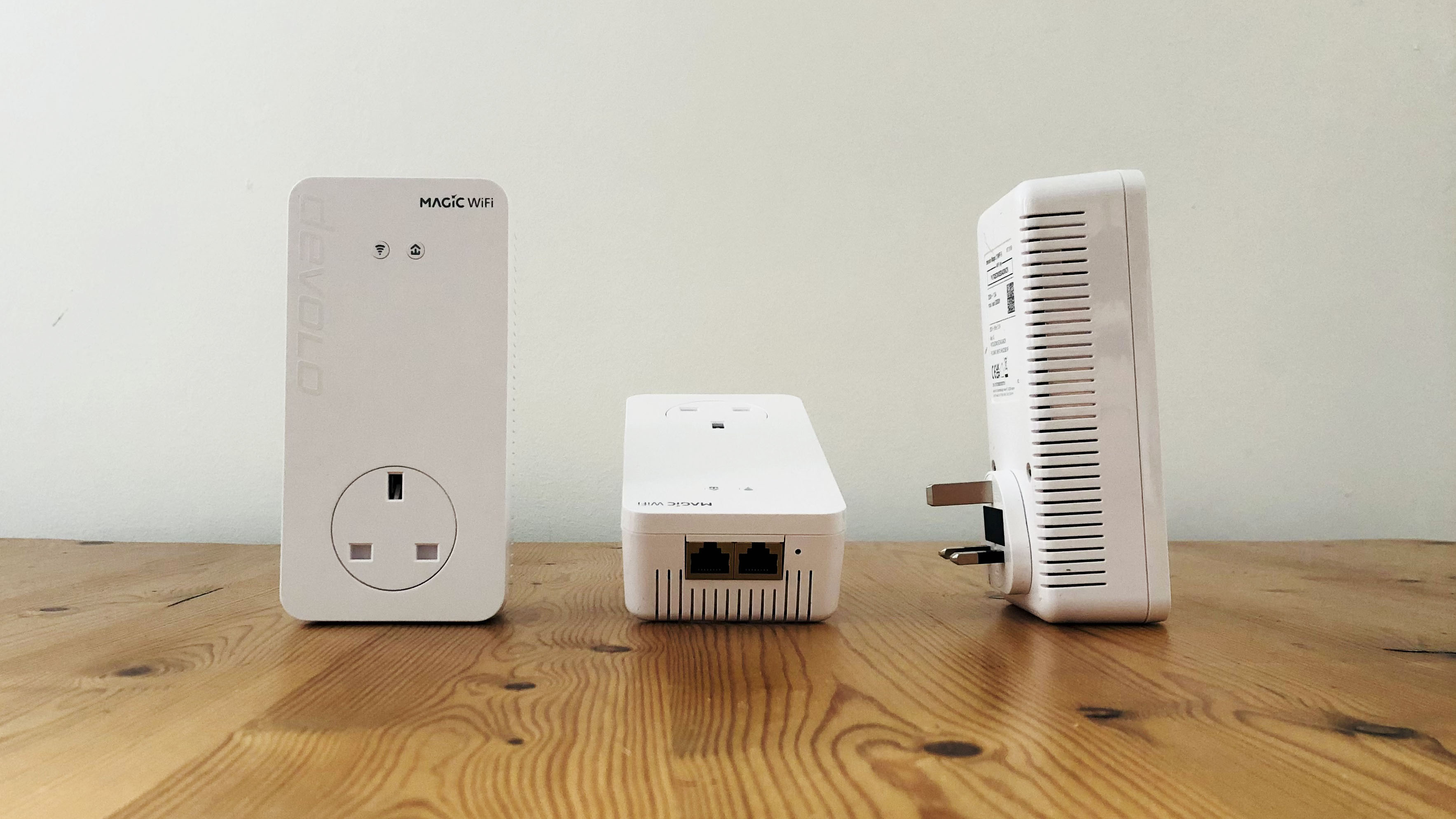
There are exceptions to the rule. The Netgear Nighthawk X6S offers seamless roaming, which automatically switches your device to the strongest signal based on its location. The Devolo Magic 2 Wi-Fi 6 Mesh uses mesh technology and gives you the option to create a single network connection. However, getting those privileges typically means coughing up more money.
Proper mesh routers, on the other hand, deliver a more seamless connectivity experience because they simply use a single network. The main router broadcasts its signal within its reach while its respective nodes or access points take care of the areas beyond. All these access points communicate with each other, intelligently directing traffic to the right nodes so you don't have to.
If you’re moving around your two-story house, for example, and you’ve got the mesh router and nodes strategically placed around your space, you can go from your bedroom upstairs to the kitchen downstairs, and then over to the other side of your home without ever noticing a drop in network performance.
Winner: Mesh routers
Wi-Fi extenders vs mesh routers: setup and management
- Extenders can be annoying to manage
- Mesh systems tend to take care of themselves
If you can get your hands on a Wi-Fi extender from the same brand as your router, you're likely to have an easier time setting it up and managing it. That’s because both devices will likely use the same app or software for setting changes and firmware updates. However, if you have to settle for one from a different manufacturer, setup and maintenance can be a pain since you’ll likely use a different app for it than the one you’re using for your existing router.
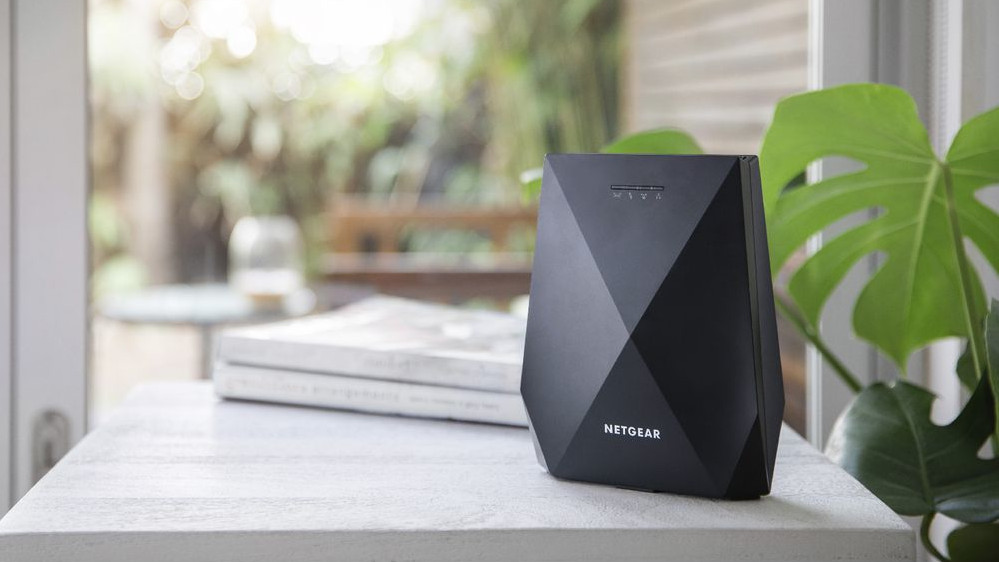
The beauty of mesh routers is that they also simplify things from a setup and management standpoint. Not only is this fairly new generation of routers designed to be effortless and intuitive to install, but firmware updates and maintenance are more effortless because the main router and all the nodes connected to it use the same app.
Winner: Mesh routers
Wi-Fi extenders vs mesh routers: which is best for you?
- First, figure out if it’s a booster that you need
- A Wi-Fi extender is great for smaller areas with a dead spot
- A mesh router is best for larger areas that need site-wide coverage
Before spending good money on a Wi-Fi booster, it’s wise to make sure it’s the single range or reach that's the issue. Figuring out if you have poor signal strength issues in your space is easy and free – it does take some walking around, but that just helps you get your steps in!
A tool like InSSIDer Lite can map out your area’s signal strength. Or, you can use the Ookla Speed Test to figure out if there are spots where your network speeds aren’t up to snuff.
Don’t immediately get a Wi-Fi booster if you do see a dead spot. Try moving your router first to an open and strategic location that allows it to maximize its range. If that doesn’t work, then it’s time to consider one of these two solutions.
As for which you should go for, that depends on your needs and coverage area. Wi-Fi extenders have gotten better and more capable over the years but to truly have a seamless and reliable network experience, you'll have to go for the pricier options that are kitted out with mesh-adjacent features. At that point, you're already spending enough to get a mesh router system, which works much more efficiently, offers a smoother experience, and is future-proof.
Our advice is this: if you're only trying to cover a small dead zone in your small to medium-size space, a Wi-Fi extender will serve you nicely – especially if you're unwilling to set up a new router.
However, if you've got a large area to cover, you're better off investing in a mesh router system.

Expand the range of your network
Pros
- Affordable Wi-Fi 6
- Works with any router
- Simple set-up
Cons
- Dual-band support

Netgear expands its Orbi line with a Pro WiFi 6 option
Pros
- Easy to deploy
- 6Gbps backhaul
- Tri-band AX6000
Cons
- Expensive
- Hardly inconspicuous

Mesh gets affordable, and takes a small performance hit
Pros
- Great value
- Easy to configure
- Good coverage
Cons
- Not as fast as some
- Lacks fine control

Michelle Rae Uy is the former Computing Reviews and Buying Guides Editor at TechRadar. She's a Los Angeles-based tech, travel and lifestyle writer covering a wide range of topics, from computing to the latest in green commutes to the best hiking trails. She's an ambivert who enjoys communing with nature and traveling for months at a time just as much as watching movies and playing sim games at home. That also means that she has a lot more avenues to explore in terms of understanding how tech can improve the different aspects of our lives.